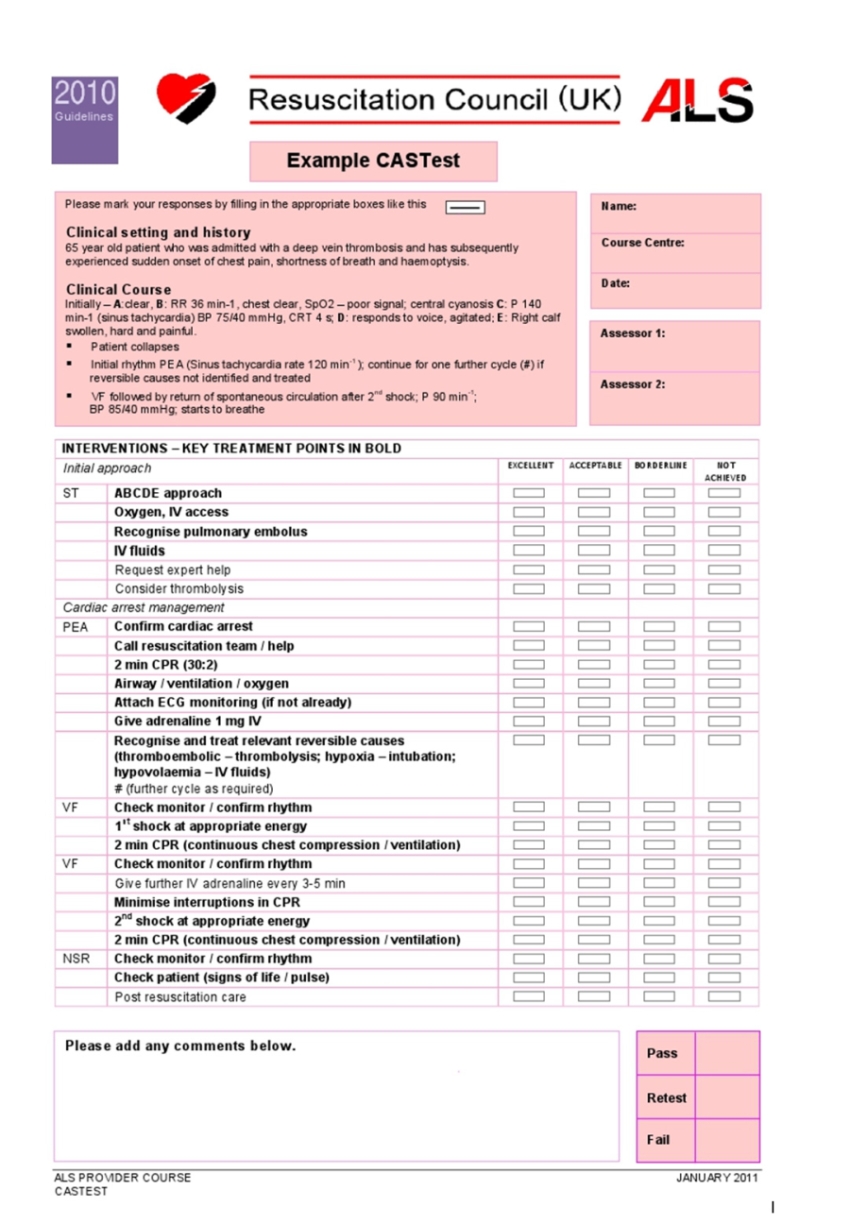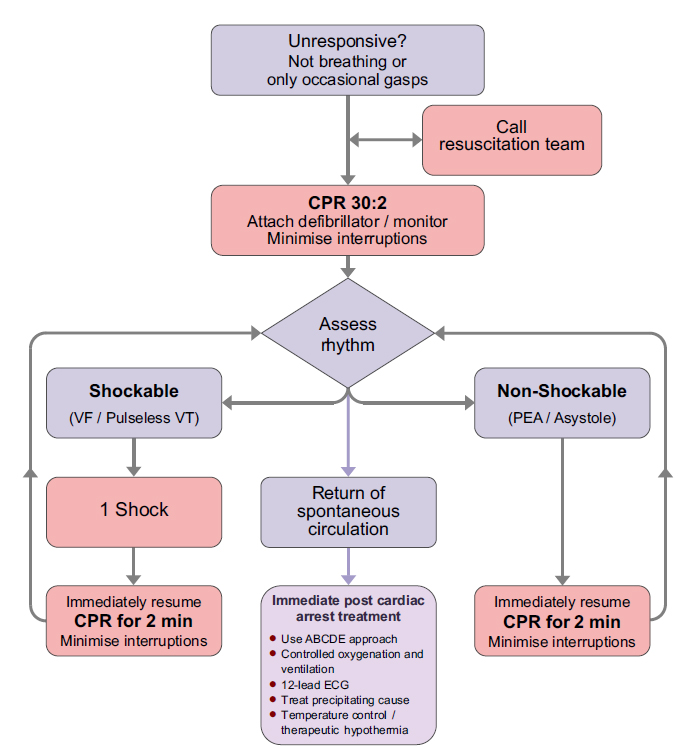
ALS in perspective
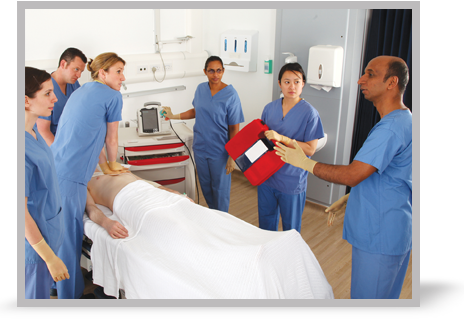
Exploring ALS
ALS course learning outcomes
- Standardised CPR for adults
- Multidisciplinary:
- doctors, nurses and other relevant healthcare providers
- Resuscitation team members
- Resuscitation team leaders
Cardiovascular disease
- Accounts for around 40% of all deaths under the age of 75 years
- At the time of collapse, the rhythm in most of these cases is VF/VT, i.e. shockable
- In-hospital cardiac arrest more commonly non-VF/VT
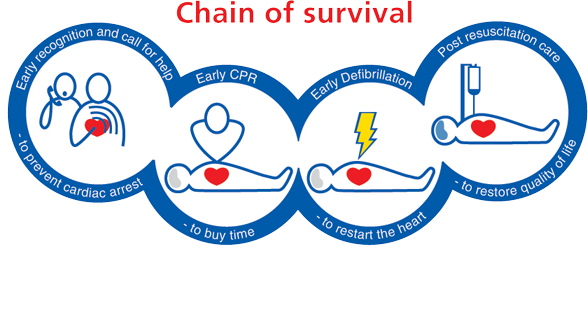
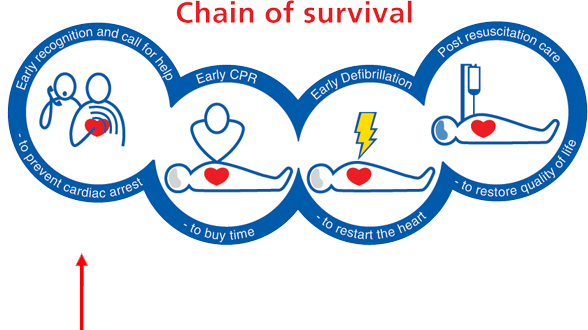
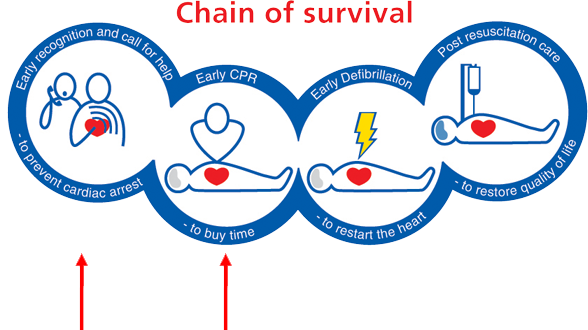
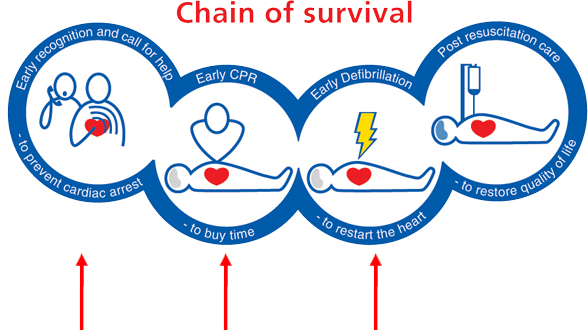
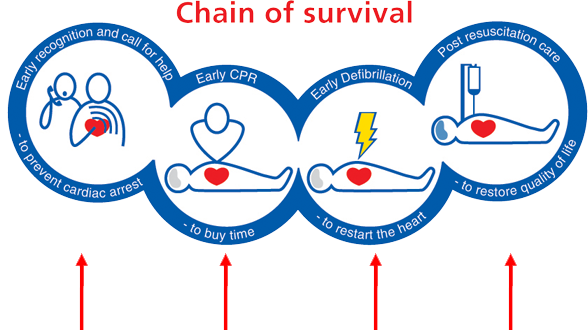
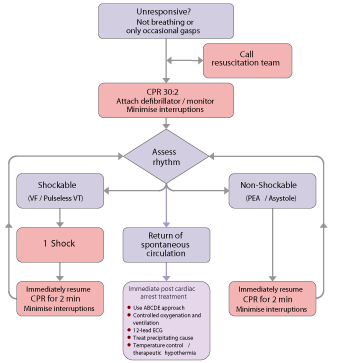
Adult ALS algorithm
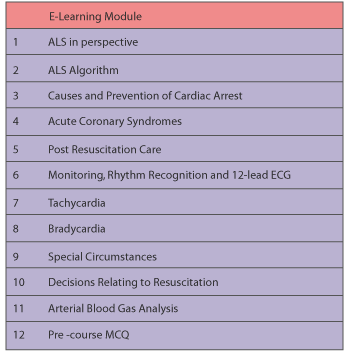
e-ALS course format
- ALS Manual
- e-ALS course elements:
- e-Lectures
- workshops
- self assessment
- pre-course MCQ
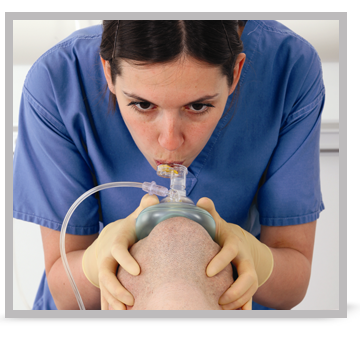
Face to face course
- Face to face element:
- skill stations
- Cardiac Arrest Simulation (CAS) training
- non technical skills
- assessment
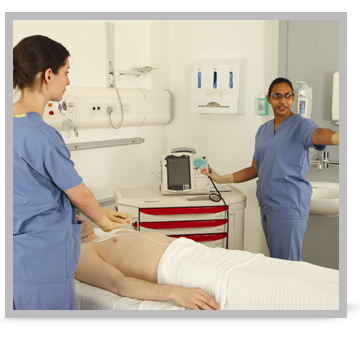
Face to face course
- Face to face element:
- skill stations
- Cardiac Arrest Simulation (CAS) training
- non technical skills
- assessment

Face to face course
- Face to face element:
- skill stations
- Cardiac Arrest Simulation (CAS) training
- non technical skills
- assessment
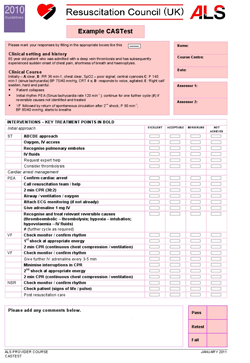
e-ALS course assessment
- MCQ
- Practical skills (continuous assessment):
- airway management
- initial assessment and resuscitation
- Cardiac Arrest Simulation (CASTest) – see the Essentials tab
- Provides certificate valid for 4 years
- Recertification
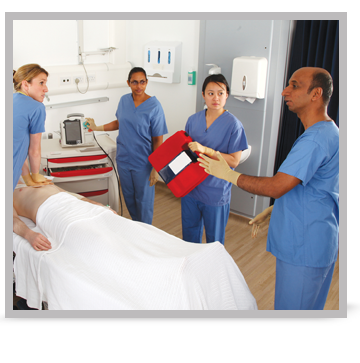
Advanced Life Support course
e-lecture
All rights reserved
© Resuscitation Council (UK) 2011
1. On behalf of the Resuscitation Council (UK) I would like to welcome you to the e-learning section of your Advanced Life Support (ALS) course. The purpose of this first lecture is to put the course in context, describe the learning outcomes and provide an insight to both electronic and face to face elements of the course.
2. The ALS course aims to provide a standardised approach to the resuscitation of adults in cardiac arrest. This will ensure a coordinated approach with all of the team working together to common standards in pursuit of a common goal.
ALS is a multidisciplinary course reflecting the range of healthcare professionals involved in the clinical practice of resuscitation.
The course facilitates effective team working, enabling participants to become effective members and leaders of the CAT.
3. The ALS course is founded upon the increasing prevalence of ischaemic heart disease which accounts for a significant proportion of deaths in patients under 75-years-old. Patients presenting with other primary problems may well have heart disease as a comorbidity.
Patients who sustain a cardiac arrest in these circumstances will often collapse due to a shockable rhythm, that is, Ventricular Fibrillation or Pulseless Ventricular Tachycardia. In these cases early defibrillation is crucial.
Cardiac Arrest registry data demonstrates that if a patient sustains cardiac arrest in hospital then the prevalent rhythms are Pulseless Electrical Activity and Asystole, outcomes which are much worse than those from VF/VT.
4.. The Chain of Survival describes four key events or interventions that are critical to improving outcomes from cardiac arrest. Like any chain it is only as strong as its weakest link; where a link is weak or missing the chain is broken and the patient does not survive. The Advanced Life Support course provides training covering each of the four links in the chain of survival.
5. The first link - early recognition of physiological evidence of deterioration prior to cardiac arrest, and prompt diagnosis of cardiac arrest when it occurs, allow early activation of the appropriate resuscitation team.
6. When cardiac arrest does occur, high quality chest compressions must be started as soon as possible to buy time by providing perfusion of the vital organs.
There is increasing evidence that the quality of chest compressions delivered from the outset can influence patient outcome.
7. Where the presenting rhythm is VF or Pulseless VT then the overriding urgency becomes delivery of a shock; the likelihood of success of which decreases by approximately 10% per minute from the point of collapse.
8. Following return of spontaneous circulation, the priority becomes post resuscitation care; this should be initiated by the ALS provider until the patient is transferred to an appropriate critical care area. The use of a post resuscitation care bundle which includes therapeutic hypothermia improves outcomes.
9. The Advanced Life Support algorithm is central to the management of patients in cardiac arrest and describes the key steps required. The use of a structured approach, in combination with attention to human factors such as decision making, situational awareness, team leadership skills, team working and task management, will allow for an efficient resuscitation attempt, delivering the highest quality care possible.
Acquiring a good knowledge of the algorithm is essential prior to attending the face to face element of your ALS course.
10. This e-learning course replaces the first day of the traditional two-day face to face course. The content of the material in the e-ALS course is the same as the material used on the face to face course. The strength of the e-learning course is that it will allow you to prepare at your own pace and to focus on areas you are less familiar with, or may find difficult.
It is essential that you read the ALS manual and work through the e-learning material prior to attending the face to face element of the course.
The e-ALS course comprises of four e-lectures in addition to this one, covering ALS treatment algorithm; causes and prevention of cardiac arrest; acute coronary syndromes and post resuscitation care
There are six interactive workshops covering ECG and blood gas interpretation; decisions relating to resuscitation; resuscitation in special circumstances; tachycardia and bradycardia algorithms. Whilst only this lecture and the ALS algorithm lecture are compulsory, you are strongly recommended to cover all parts of the e-learning material.
Once you have completed the e-learning material you must complete the pre-course multiple choice paper prior to attending the face to face course. You will be provided with detailed feedback on your performance on the pre-course MCQ. The time spent on the various elements of the e-learning material and the results of your MCQ test will be available to the instructors teaching on the face to face course.
11. The face to face course includes skill stations, during which the technical skills of airway management, patient assessment, CPR and defibrillation are taught.
12. The bulk of the face to face course is spent working in small teams through a series of simulated cardiac arrests. These sessions provide the opportunity to work through a series of different cardiac arrest scenarios.
13. Each simulation lasts 15 minutes which includes five minutes for a structured debrief. The sessions allow you to consolidate practical skills and also to develop the non-technical skills that allow teams to function effectively.
14. The ALS course contains a number of assessments.
At the end of the course you will sit a written MCQ paper. This is similar to the pre-course MCQ but covers different material. This is a knowledge test and has a pass mark of 75%.
Practical airway, CPR and defibrillation skills will be assessed during the respective skill stations.
The final element of testing is a simulated cardiac arrest scenario during which you will be expected to lead a team of competent providers in the management of a critically ill patient who then sustains a cardiac arrest. An example of the format of the CASTest is given here.
Once you have successfully completed both elements of the course and completed your on-line evaluation you will be able to download your certificate; this is valid for four years. It is worth noting that the validity period of this certificate does not supersede any local requirement for more frequent training.
Towards the end of the four year period you will need to recertify, this is possible by either attending another ALS course or a one day (face to face) recertification course.
15. This concludes the introductory talk. I hope that you enjoy the rest of the e-learning course and we look forward to meeting you on the face to face course.
Professor Gavin Perkins is the Chair of the ALS Subcommittee at the Resuscitation Council (UK) and the Clinical Lead for the ALS e-learning project. He is a Professor in Critical Care Medicine at the University of Warwick and Consultant Physician at the Heart of England NHS Foundation Trust. (2011)






